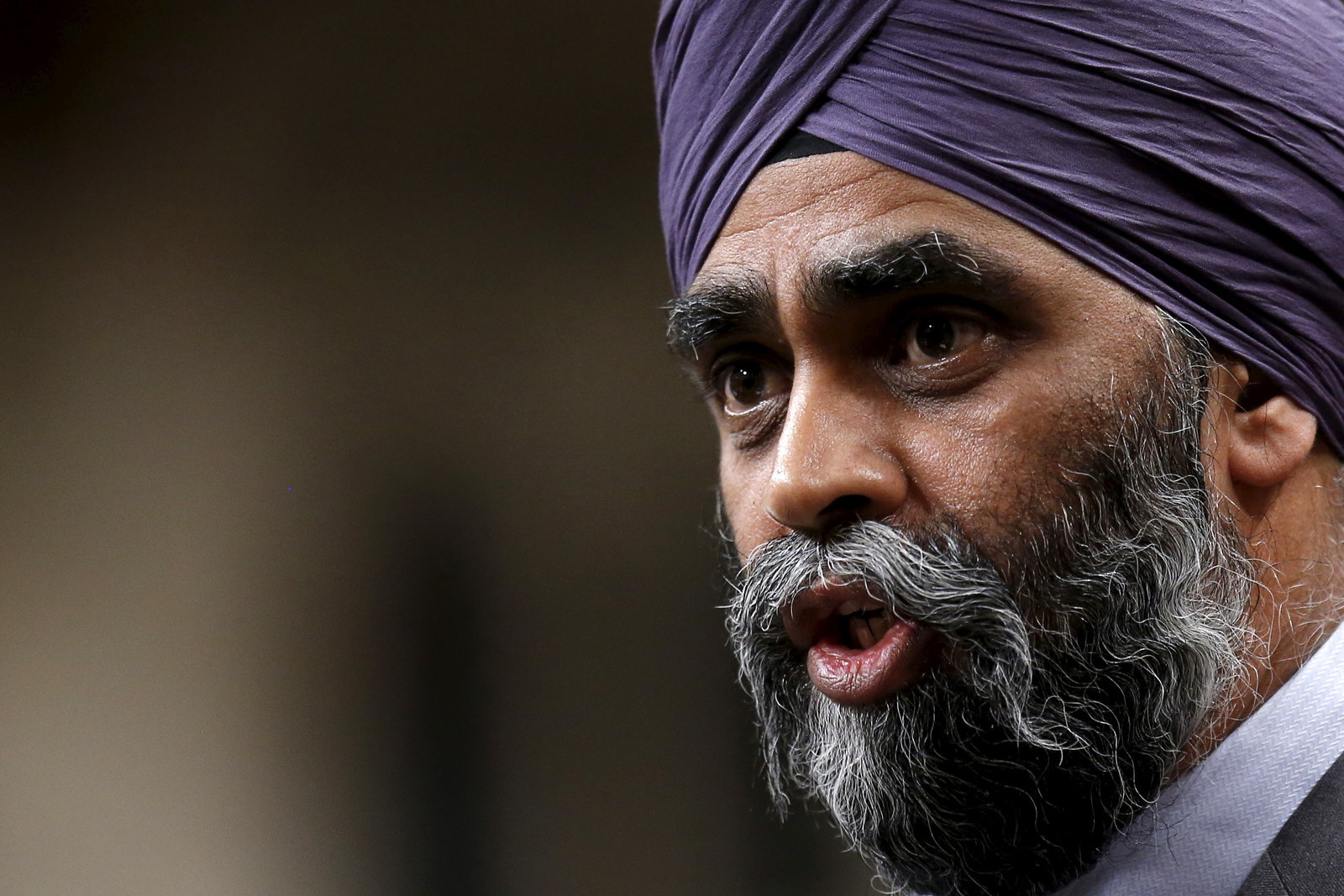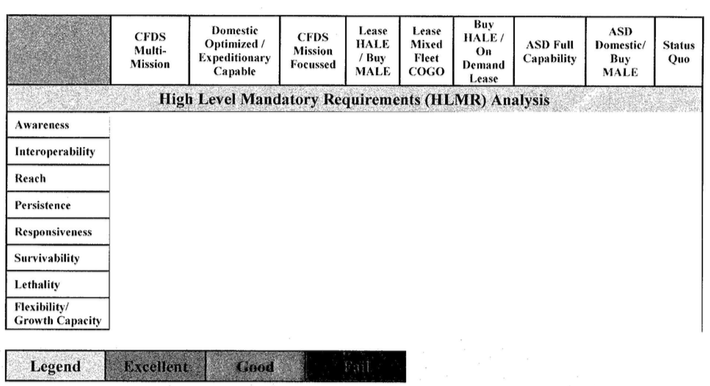Despite saying they were "extremely useful" in Afghanistan, Canada's defence minister won't say whether buying drones is a priority for the new government.
Meanwhile, the military is using the Afghanistan mission to convince politicians to spend up to $1.5 billion on bomb-dropping drones, internal documents show.

Documents that lay the foundation for Canada's long-troubled drone project claim that "events in Afghanistan, Libya and more recently Iraq and Syria have highlighted" the need for all-purpose unmanned warplanes.
"In Afghanistan, the CAF had been exposed to attacks and ambushes across wide areas where there is little or no intelligence of specific threats," the documents say.
The documents, obtained under access to information laws, say the military wants a drone that can both conduct surveillance for extended periods of time and fire precision-guided bombs at targets 150 kilometres away within 30 minutes of the military asking for a strike.
Canada leased the unarmed, Israeli-built Heron during the Afghanistan mission, but the lease expired in 2011.

Defence Minister Harjit Sajjan, a retired major who did three tours in Afghanistan, told BuzzFeed Canada the leased UAVs were "extremely useful" for spying on the enemy and clearing roads, "especially the night before our troops were going to be driving over that road." The mere sight of a drone flying overhead could "calm the situation down," he said.
But Sajjan said even with the leased surveillance drones, the military's capability was "not as robust as it could have been."
"I wish we had more robust capability during the mission in Afghanistan because, you know, our Canadian soldiers' lives were at risk," he said. "Not just ambushes, the IED threat was quite significant."
Now that he's the person in charge of acquiring those capabilities, though, he's less committal.

Asked whether he wishes he had drones now to fight the Islamic State, Sajjan said the government needs to think more broadly than individual missions when buying pricey equipment. He nor his office would say whether buying drones is a priority, pointing instead to the Liberals' planned review of Canada's procurement strategy, which is scheduled for completion in 2017.
The military has been trying to get its hands on drones — often called unmanned aerial vehicles (UAVs) — for more than a decade. But as the documents explain, the project has been plagued with delays, funding issues, and limited staff.
The documents claim drones are more cost-effective and would reduce the number of deaths by keeping soldiers out of harm's way.
Another "key driver" for the project is drones' ability — through better targeting data and quick fire — to respect international law by limiting collateral damage and civilian deaths, the documents say.
At the same time the Canadian military was approving the Stategic Context Document for the drone project, it was dealing with allegations that its fighter jets had killed up to 27 civilians during an air strike against ISIS in Iraq.
The military has previously said it wants buy a "low collateral damage weapon" for its CF-18s, to be used "in urban and politically sensitive operations."
Sajjan's office said the drone document "in no way implies" Canada has problems with its current arsenal, though. "Rather it stresses the seriousness with which we take our international obligations," spokesperson Jordan Owens said in an email.
But for all their supposed advantages, drones haven't been without major criticism. In the U.S., the Obama administration has taken heavy fire over reports that its drones have killed hundreds of civilians in the Middle East.
Sajjan insisted the Canadian military makes sure it won't hit civilians "regardless of what weapon system is going to be used."
The documents claim Canada's ability to protect its borders — particularly the North — is also suffering without drones.
“Both the size of Canada’s territory and the tempo of CAF operations challenge the CAF’s ability to meet its [intelligence, surveillance, and reconnaissance] requirements with the current platforms available," the document reads.
Climate change and melting ice in the Arctic have "resulted in increased economic activity and international challenges to Canadian sovereignty," the document says.
The document says the defence department has already studied different options for acquiring drones, including through leases.

A previous report suggested the air force could be looking at the American-built MQ-9 Reaper, while another report said the Predator was the front-runner.
But a briefing note also obtained by BuzzFeed Canada through access to information shows Canadian officials met with both representatives from the Israeli defence ministry and Israel Aerospace Industries — which builds the Heron — last spring.
"The potential for Israel Aerospace Industries to supply Unmanned Aircraft Systems to Canada will become clearer as requirements and a procurement strategy are further defined," the June 2015 note says.
Most recently, the defence department issued a call-out to industry to get information on the kinds of drones they could offer. The scheduled contract award date is 2020.
The air force did not respond to an interview request.
UPDATE
The air force explained why it couldn't do an interview on JUSTAS. "At this time, we are in the early stages of the procurement process and further, the Government has not yet made policy decisions regarding the employment of a CAF unmanned aircraft system," Lt. James Carruthers said in an email.
